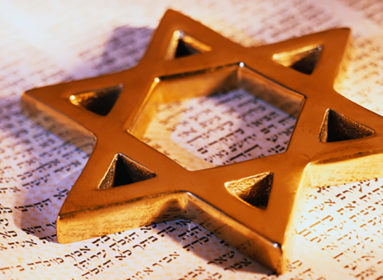
By Shlomo Riskin
“And Abram went up from Egypt, he and his wife and all of his possessions, and Lot went next to him to the Negev.” (Gen. 13:1)
The portion of Lech Lecha is a kaleidoscope of intriguing and exciting sequences—from the attempted rape of Sarah in Egypt to inter-family conflict to a major war to God’s mysterious covenant with Abraham. Are these disparate stories held together only by a time-line, or is there a conceptual scheme placing them in a higher context? I believe that an examination of the portion’s seven sub-divisions, or aliyot, will provide the uniting theme as well as Israel’s most important—though often overlooked—role among the nations (see Elhanan Samet’s Biblical Commentary).
The portion opens with God’s command to Abram to move to the Land of Israel: “I shall make you a great nation, I shall bless you, and I shall make your name great; you shall be a blessing. I shall bless those who bless you, and those who curse you I shall curse; all the families of the earth shall be blessed through you” (Gen. 12:2-3). God is here promising Abram two things: national development and a spiritual greatness that will encompass the world. Abram is presented as a world leader who will influence all the families of the earth. After all, he is already teaching his future generations “compassionate righteousness and moral justice” (Gen. 18:18, 19). The Vilna Gaon suggests that the phrase usually translated “I shall curse” (Hebrew a’or) might actually mean “I will show the light” (or is light in Hebrew). Israel is to be a light unto the nations, a kingdom of priest/teachers who bring the message of ethical monotheism to the world.
Abram desperately requires progeny for both of these mandates. And so the barren Abram and Sarai place their hope for the future in Lot, Abram’s deceased brother’s son. Hence the Bible records—in the verse following the blessing and the charge—“And Abram went in accordance with the way the Lord spoke to him, and Lot went with him… And Abram took Sarai his wife and Lot the son [of his brother] and all the wealth they had acquired… “ (Gen. 12:4-5). But then came the famine and the sojourn in Egypt. Our text (second aliya) highlights Egyptian exile as being fraught with both physical danger (Sarai is seized) and spiritual danger (the materialistic blandishments of Egypt). The Hebrew family survives the near-rape intact, but Egypt seems to have had a corrosive effect on Lot: “And Abram came up from Egypt, he and his wife and all that were his, and Lot next to him…” (Gen. 13:1).
This is very different from when the family first set out for Israel: then, Lot was mentioned right after Abram and Sarai (that is, before their possessions), and went with Abram physically and spiritually (ito) and not merely in physical proximity (imo), as here. At this juncture, however, the change in Lot is merely hinted at. The next aliya, which begins “And also Lot, going with Abram, had sheep, cattle and tents… And the land was not sufficient to carry both of them” (Gen. 13:5-6), leaves no room for doubt. Israel has become too small for the two of them—Abram’s mission isn’t materialistic enough for Lot, who has no desire to perfect the world; he wants to own it! So he leaves Abram’s land and Lord in favor of the lush, Egypt-like Sodom to pursue materialism rather than spirituality, momentary vice rather than monumental vision.
The great message of Abraham’s new name (earned in Gen. 17:5) is his universal mission (“Neither shall thy name any more be called Abram, but thy name shall be Abraham; for the father of a multitude of nations have I made thee”). Hence, the second aliya concludes with “And Abram called out [to humanity] there with the name of the Lord” (Gen. 13:4), and the third aliya concludes with, “And Abram built there an altar to the Lord” (Gen. 13:18). The fourth aliya deals with Melchizedek (identified by the Midrash as Shem, son of Noah), the king of Jerusalem, who recognizes the universal God of peace. And the rest of the portion deals with God’s covenant with Abraham—His promise of an heir who will make Abraham’s progeny light the world like the stars of heaven. The structure and content of our Torah portion teach us why and how Lot cannot be considered a suitable heir for Abraham’s mission.
We must wait many generations for Lot’s return to the fold, in the person of his descendant Ruth (offspring of Moab, the son born to Lot and his daughter).
Apparently, God has cosmic patience, and so must we, if we are to be His emissaries.
Rabbo Shlomo Risken is founder and rosh yeshiva of Ohr Torah Stone
In Efrat, Israel.







 Southern New England Jewish Ledger
Southern New England Jewish Ledger













